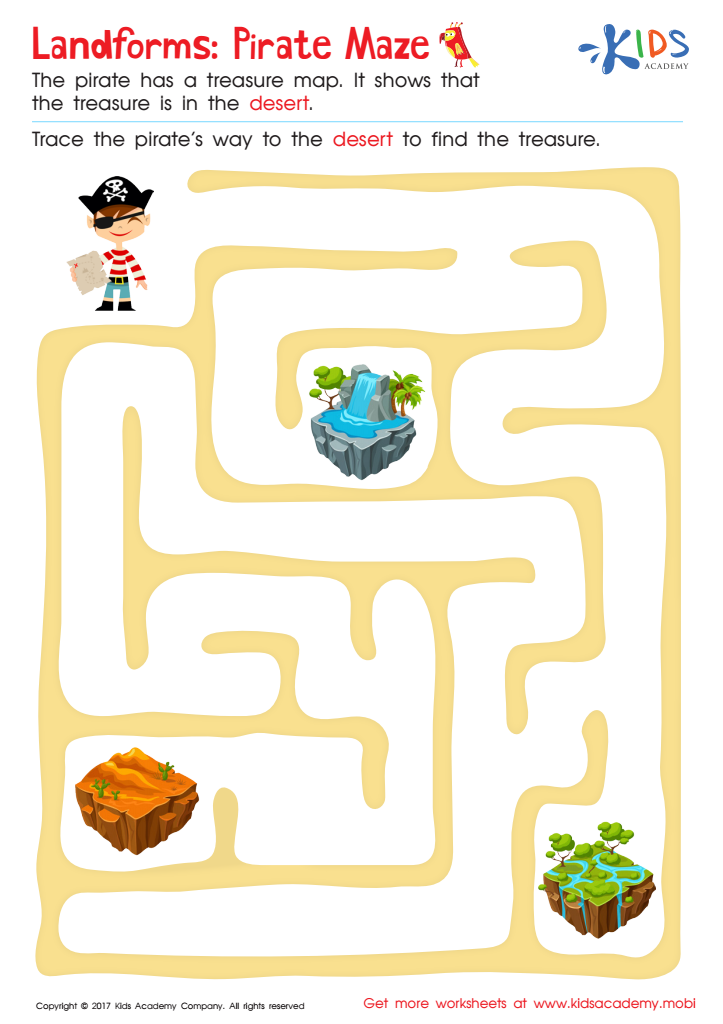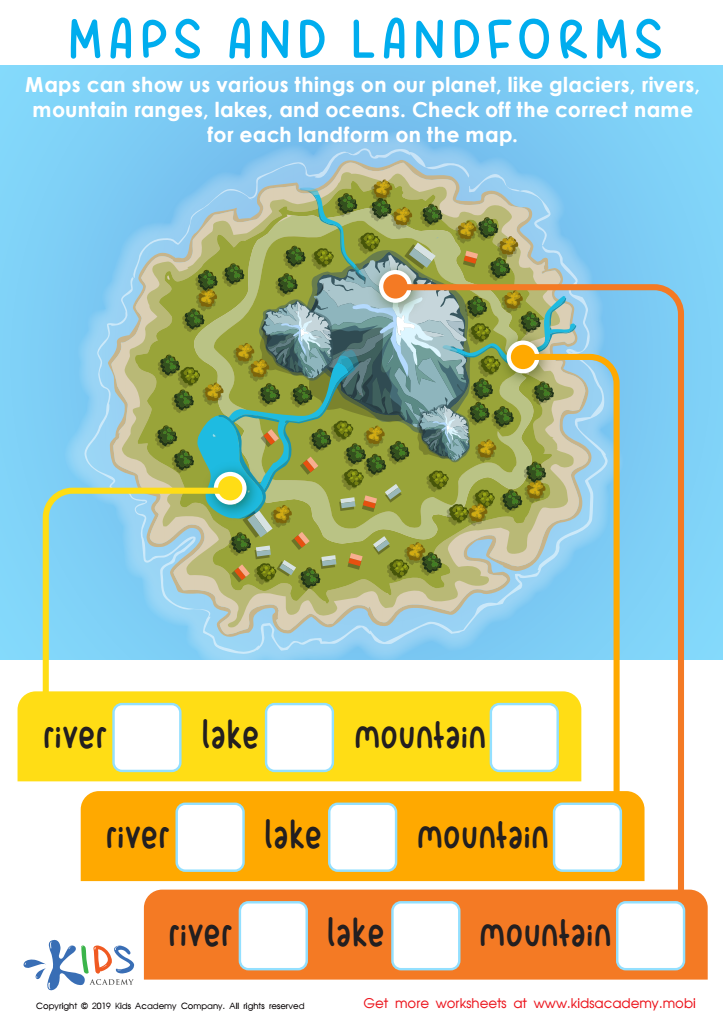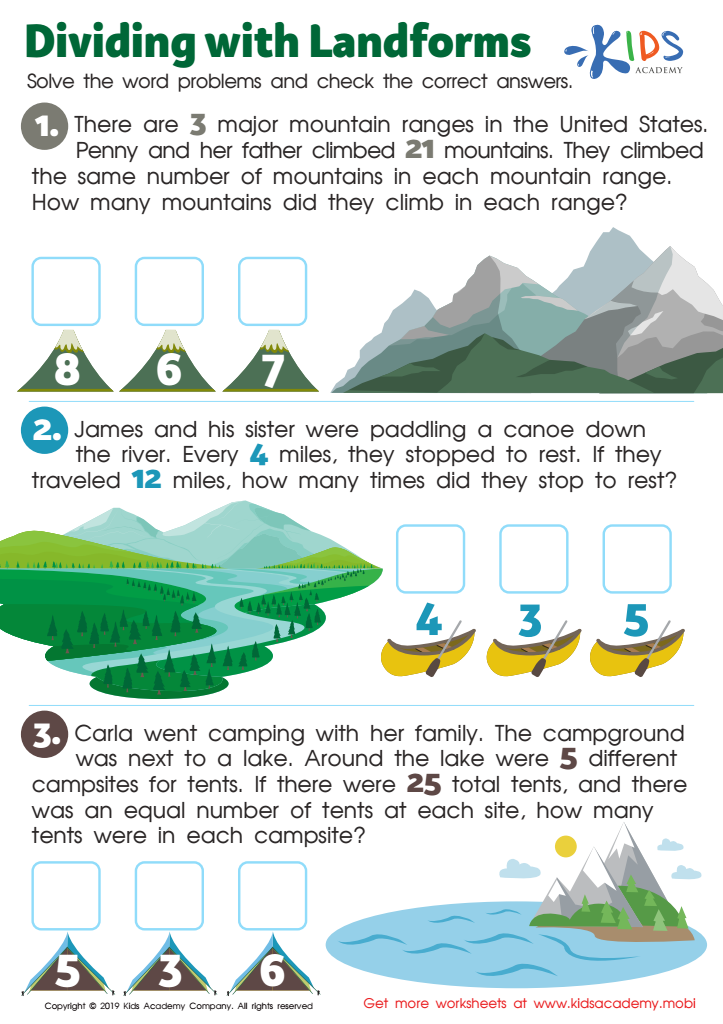Understanding landforms Science Worksheets for Ages 5-8
3 filtered results
-
From - To
Introduce your young learners to the wonders of Earth's surface with our "Understanding Landforms" science worksheets designed for children aged 5-8. These engaging, informative, and visually captivating worksheets simplify complex concepts, making learning both fun and effective. Covering various types of landforms, from mountains to valleys, they help children identify and understand natural features with ease. Ideal for classroom use or homeschooling, these worksheets enhance kids' observation and analytical skills while sparking their curiosity about the world around them. Dive into interactive, hands-on activities that pave the way for budding scientists to explore and appreciate Earth’s geography.


Landforms: Pirate Maze Printable


Maps and Landforms Worksheet


Dividing with Landforms
Understanding landforms is foundational for young children because it lays the groundwork for their future learning in science and geography. At ages 5-8, children are naturally curious and eager to explore the world around them. Learning about landforms like mountains, valleys, rivers, and plains helps them make sense of their environment. This knowledge sparks their imagination and encourages them to ask questions, nurturing their cognitive development.
Moreover, understanding landforms fosters environmental awareness and stewardship. When children recognize different landforms, they begin to appreciate the beauty and diversity of the Earth's surface. This appreciation can foster a sense of responsibility towards conserving natural resources and protecting the environment.
Integrating landforms into early education also supports multi-disciplinary learning. For instance, drawing a mountain and labeling its parts can enhance fine motor skills and reinforce vocabulary. Counting the number of hills in a picture can introduce basic math concepts.
For parents and teachers, using landform studies to engage children is a wonderful way to pique their interest in science and nature while promoting critical thinking and observational skills. By ensuring children grasp these basic concepts, adults set the stage for more advanced earth science topics and a lifelong appreciation for the planet.

 Assign to My Students
Assign to My Students















